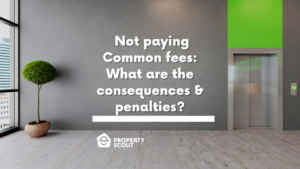Failing to Fulfill the Common Fee Payment: Consequences and Penalties


When you own a house or condo in a community, it's important to understand your financial obligations beyond the mortgage payments. Common fees are a regular expense that you'll need to pay, typically on a monthly or quarterly basis. However, if you fail to make these payments on time, there can be significant consequences and penalties that could impact your ownership status and your relationship with your neighbors. In this blog post, we'll explore what happens when you fail to fulfill the common fee payment and what steps you can take to avoid the pitfalls.

What are common fees?
Common fees in real estate are regular charges that homeowners of a shared community, such as condominiums or townhouses and villages, pay to cover the expenses of shared amenities and services. These fees are typically collected by the juristic offices and are used to cover expenses such as building maintenance, landscaping, insurance, utilities, security, and community facilities.
Reason for fee collection

The juristic offices will utilize the fee collection to cover various monthly expenses, including but not limited to, water and electricity for common areas, as well as the upkeep of facilities such as the swimming pool, gym, and garden. In addition, the fees will also go towards paying the salaries of employees such as maids and security guards.
A portion of the common fee collection will also be set aside for routine maintenance and repair tasks, which may include addressing wear and tear on fitness equipment, repairing cracked asphalt in the parking lot, and repainting areas of the houses or buildings where the paint has begun to flake.
Factors that determine how much you have to pay for your common fees
These are the factors which may contribute to your common fees being high or low in price.
Unit Size
- The size of your unit is a significant determinant in the calculation of your common fees. As a result, owners of larger units, such as 3-bedrooms, duplexes, or penthouses, will pay a higher fee compared to those with smaller units. The common fee for each unit is determined by multiplying the size of the unit in square meters by the common fee per square meter.
The project's size (amount of houses/amount of units)
- The number of units or houses within a project impacts the amount of common fees due, with larger projects typically benefitting from reduced fees due to various dividing factors. However, sizable high-rise condominiums with numerous facilities may require higher common fees to cover the increased costs associated with maintaining the facilities.
Design and facilities
- Another equally significant determinant in the calculation of your common fees is the design of the project along with its facilities. Beautifully-decorated Super luxury projects which include numerous facilities, as such, will require higher common fees.
Juristic fees
- The common fees for a housing estate or condominium may be higher if the juristic team overseeing the management and maintenance of the area has specialized expertise and can operate with greater efficiency.
The Law regarding Common Fee Collection for Condo and Housing Projects
Whether they are permanently residing in their unit or intend to rent it out, all residents who own a house or a condominium are required to pay common fees. Despite this, some individuals may question whether they still have to pay these fees if they do not utilize the common areas or if they are absent from the property.
In accordance with the ruling in Case No. 10230/2553 concerning the legal aspects of common fees for housing estates and condominiums, it has been established that these fees constitute a debt incurred in accordance with Section 18 of the Building Control Act, B.E. 2522. As such, all residents are deemed debtors and are obligated to pay the debt in accordance with the law. Therefore, even if a resident does not use the amenities in the common area or does not live in the purchased property, they are still required to pay the common fees and cannot avoid this responsibility.
The Penalties

Here are the potential penalties you could face if you fail to pay the common fees in time, both for housing and condo projects
Condo Project Common Fees
- 12-20% fine (of total amount of common fees) in case of failing to pay common fees in time.
- No right to vote in case of a large meeting within the project.
- You will not be granted a debt-free certification, which also means you will not be able to sell off the unit or transfer ownership.
- You could be sued by the project as a last resort if you leave the common fees unpaid for too long.
Housing Project Common Fees
- 10-15% fine (of total amount of common fees) in case of failing to pay common fees in time.
- 3 months late: You could be revoked of services by the juristic offices such as the garbage pick-up service or being revoked of key card usage for accessing facilities such as the swimming pool or gym.
- 6 months late: You could be sued by the project as a last resort and be revoked of selling or ownership transfer rights.
Conclusion
In conclusion, common fee payment is an essential responsibility that every resident in a housing estate or condominium must fulfill. Failure to do so not only leads to consequences and penalties but also creates an unfair burden on other responsible residents. It is important to understand that common fees go towards maintaining the community's shared facilities and amenities, which benefit all residents. Therefore, it is vital to prioritize common fee payment to ensure the smooth functioning and upkeep of your living environment. Remember, a responsible resident not only contributes to the community's well-being but also sets a positive example for others to follow.
Check out our selection of over 250,000 properties for both sale and rent throughout Thailand
You may also be interested in:



